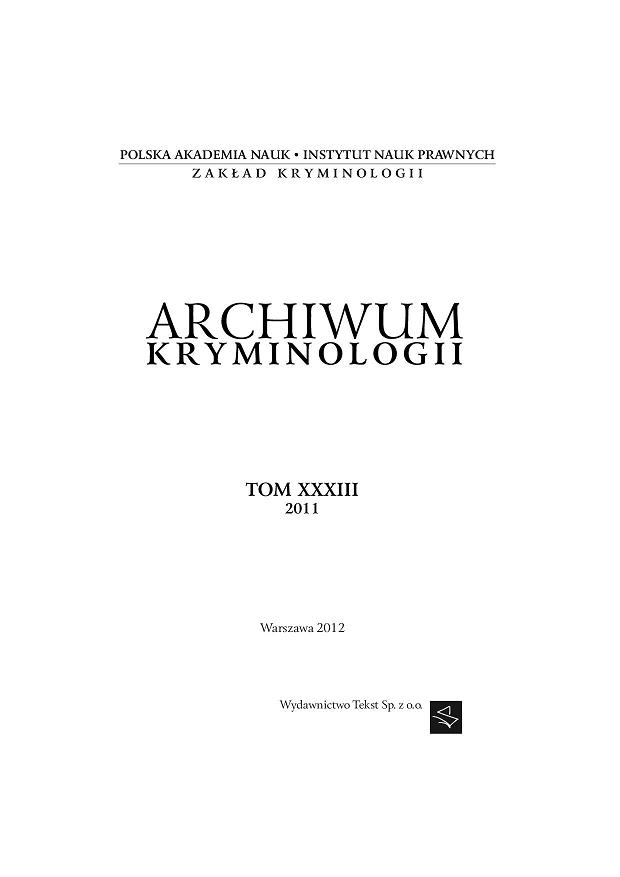Wyniki badań terenowych nad zjawiskiem prostytucji w Polsce
Results of Field Studies on Prostitution in Poland
Author(s): Barbara BłońskaSubject(s): Law, Constitution, Jurisprudence
Published by: Instytut Nauk Prawnych PAN
Keywords: PHENOMENON OF PROSTITUTION IN CONTEMPORARY POLAND; PROSTITUTION;
Summary/Abstract: In the article I would like to present the results of field studies in which I attempted to analyse the phenomenon of prostitution in contemporary Poland. The main task was to localise the phenomenon within the social structure of big urban agglomerations (particularly Krakow and Warsaw) and to investigate how prostitutes function in the society. Partial research problems described in the article were as follows: 1. To find out what prostitutes define as the worst part and the greatest drawback of their profession, how they manage these negative aspects, and who can possibly help them. It was also important to locate possible threats and the ways to eliminate or reduce them. 2. Another issue was the plane of contact with the generally understood state, from the system solutions concerning prostitution (including the answer to the question whether prostitution should be a legal profession) to everyday contact with various state institutions. It was vital if the state institutions responded to prostitutes’ expectations and to what extent, as well what their expectations towards such institutions are and how public assistance for this group should look like. 3. The picture which started to emerge after first interviews left no illusions. The presence of state institutions in prostitutes’ lives is minimal, the state institutions serve mainly to control, not to protect or assist. In a sense, this social group is an abandoned one, owing to abolitionism policy the state has withdrawn from any actions in this sphere. In case of prostitutes, who function under constant threat, the official state organs do not even perform the role provided by the most extreme liberal conceptions, that is even the role of a “watchman” who guards merely physical security. This is why it was so important to investigate who performs this role in the stead of the state, if their actions are effective, in which place of social structure prostitutes obtain actual protection, and, additionally, support and assistance. 4. As a result, a significant part of the study has been devoted to an analysis of social environment in which prostitutes function: with whom they have most frequent contacts, to whom they turn for help, and how they define their place in the society themselves. As a consequence, this subject of field studies – the social environment of prostitution – appeared to be an important and independent research issue. Particularly interesting issues included questions how everyday life of prostitutes looks like, how much their profession interferes with their usual social relations, how their relations with the closest people and families look like, and if they are able to maintain social relations outside their professional group. How the respondents manage their incomes and if they are able to carry out their financial plans seemed a good sign of effective everyday functioning.
Journal: Archiwum Kryminologii
- Issue Year: 2011
- Issue No: XXXIII
- Page Range: 57-162
- Page Count: 99
- Language: Polish

